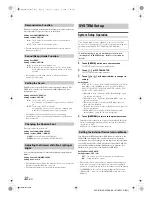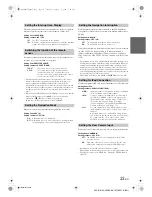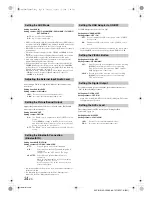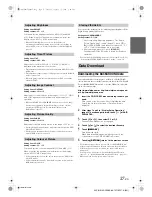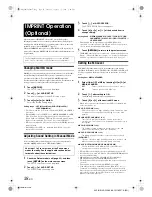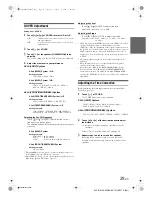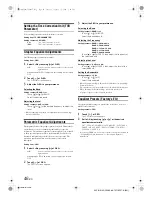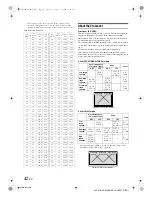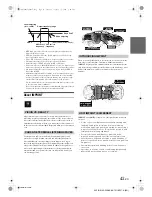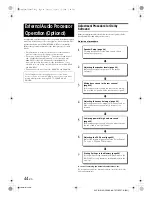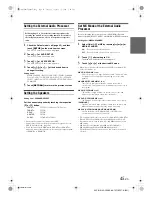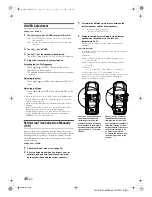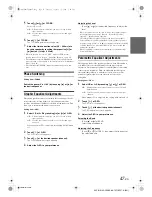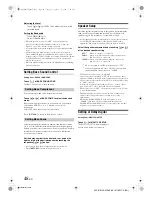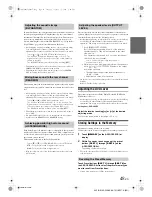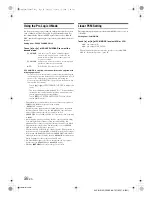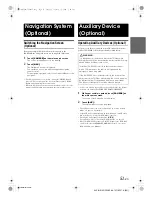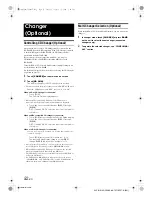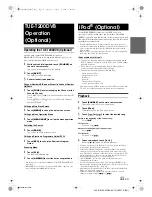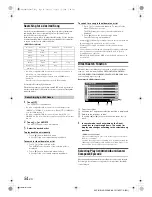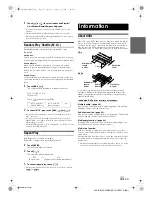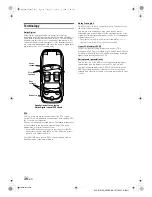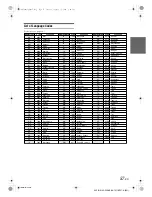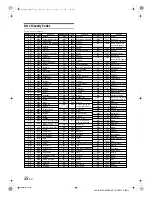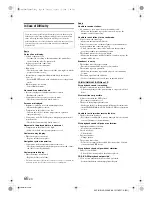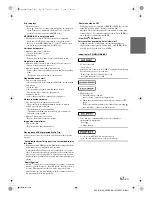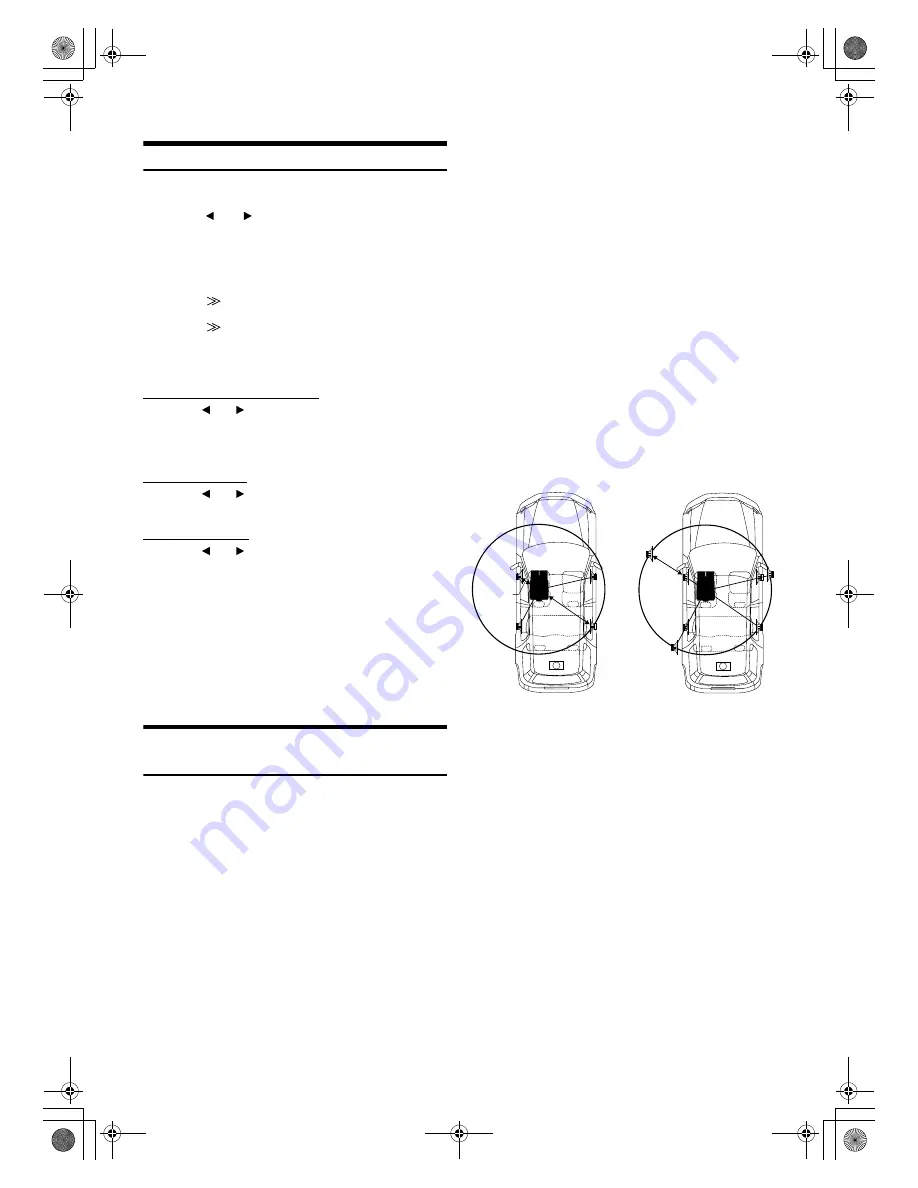
46
-EN
01GB06IVA106E.fm
ALPINE IVA-D106E 68-12118Z27-A (EN)
X-OVER Adjustment
Setting item : X-OVER
1
Touch
[
]
or
[
]
of X-OVER to select L/R or L+R.
2
Touch
[
]
of X-OVER.
3
Touch
[
]
of the speaker to be adjusted.
The screen changes to the X-OVER screen to be adjusted.
4
Adjust the crossover to your preference.
Selecting the Cut-Off Frequency
Touch
[
]
or
[
]
of FREQ., then select the cut-off
frequency (crossover point).
The adjustable bandwidth differs depending on the speaker
(channel).
Adjusting the Level
Touch
[
]
or
[
]
of LEVEL, then adjust the HPF or LPF
level.
Adjusting the Slope
Touch
[
]
or
[
]
of SLOPE, then adjust the HPF or LPF
slope.
•
When the speaker is set to the “OFF” mode, the X-OVER for that
speaker cannot be set. Refer to “Setting the Speakers” (page 45),
“Speaker Setup” (page 48).
•
Check the playback frequencies of the connected speakers before
adjusting.
•
In order to protect the speakers, there is no OFF setting for the
subwoofer low pass filter (the slope remains the same).
•
The H.P.F. filter cannot be set to OFF (slope OFF) if Tweeter is
selected for FRONT1 . Or, only the subwoofer is adjustable if
STEREO is selected for the subwoofer.
Performing Time Correction Manually
(TCR)
Because of the particular conditions inside the vehicle, there can be
major differences in the distances between the various speakers and the
listening position. It is possible to calculate the optimum correction
values and eliminate the time error at the listening position yourself
using this function.
Setting item : T.CORR
1
Check that Defeat mode is off (page 25).
2
Sit in the listening position (the driver’s seat, for
example) and measure the distance (in meters)
between your head and the various speakers.
3
Calculate the difference in distance between the
farthest speaker and the other speakers.
4
Divide the distances calculated for the different
speakers by the speed of sound (343 m/s
temperature 20°C).
This value is the time correction value for the various
speakers.
Concrete examples
Calculating the time correction value for the front left speaker on
the diagram below.
In other words, setting the time correction value for the front left
speaker to 5.1 (ms) sets a virtual distance matching the
distance to the farthest speaker.
L/R:
Different adjustment values can be set for the left and
right channels.
L+R:
Sets the same adjustment values for the left and right
channels.
L =
(distance of farthest speaker)
– (distance of other speakers)
Conditions:
Distance between farthest speaker and listening position:
2.25 m (88-3/4")
Distance between front left speaker and listening position:
0.5 m (20")
Calculation:
L = 2.25 m (88-3/4") – 0.5 m (20")= 1.75 m (68-3/4")
Compensation time = 1.75 ÷ 343 x 1000 = 5.1 (ms)
2.25m
0.5m
5.1ms
The sound is uneven because
the distance between the
listening position and the
different speakers is different.
The difference in the distance
between the front left and rear
right speakers is 1.75 meters
(68-3/4").
Time correction eliminates
the difference between the
time required for the sound
from the different speakers to
reach the listening position.
Setting the time correction of
the front left speaker to 5.1
ms makes it possible to
coordinate the distance from
the listening position to the
speaker.
01GB00IVAD106E.book Page 46 Tuesday, January 15, 2008 2:48 PM

